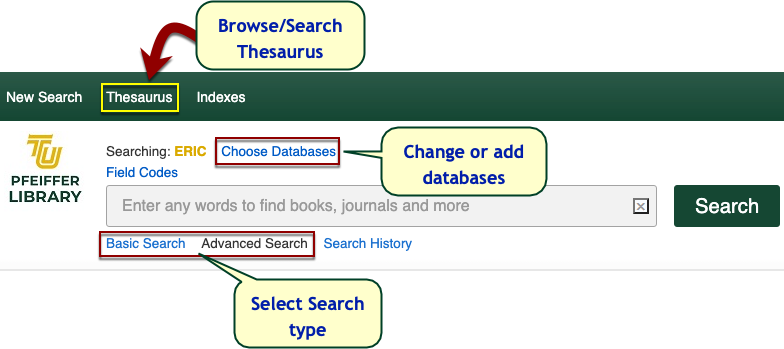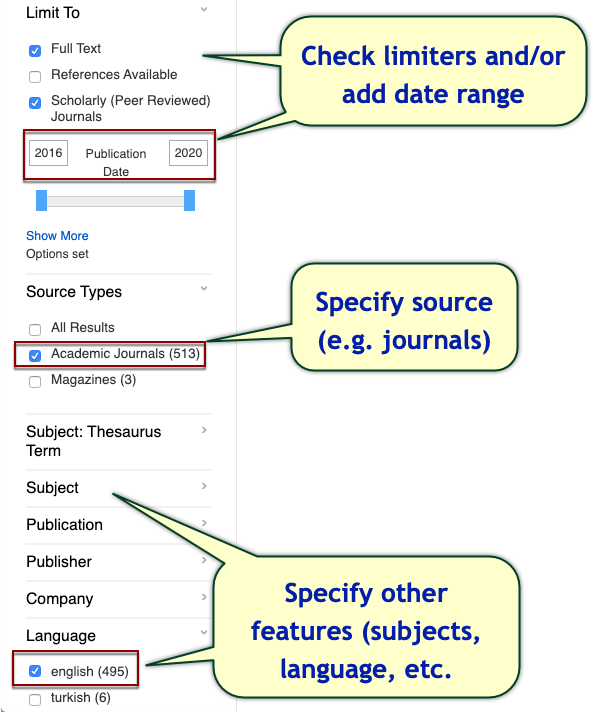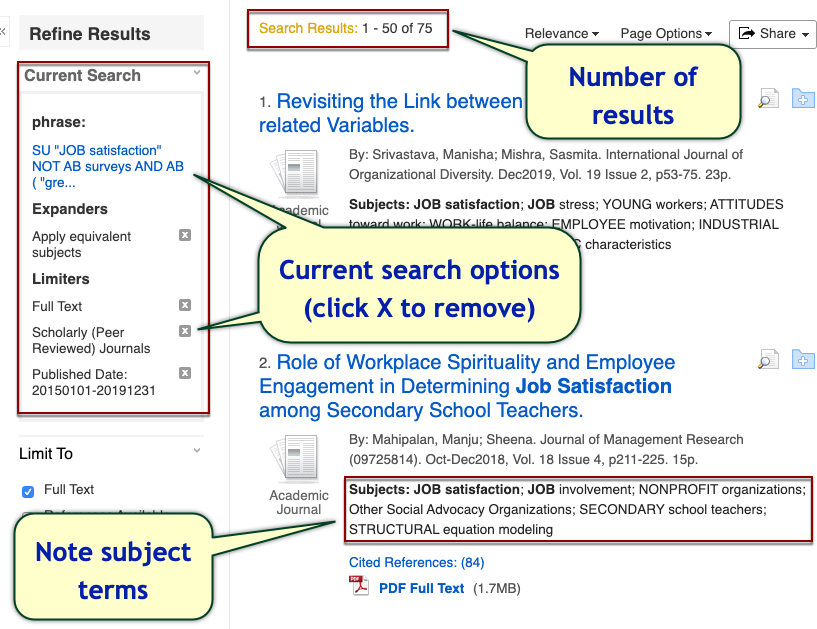Library Resources for Education
For security purposes all links will open in a new tab.
Overview
Throughout your time at TU you will search for scholarly articles from leading peer-reviewed journals. Though the Web offers thousands of freely accessible materials, some scholarly or authoritative, many of the most scholarly materials are not accessible for free. Instead, they are restricted to subscribers of proprietary services, to include library databases. TU students have access to both local and consortial resources, such as the statewide OhioLINK.
Access to Resources
For off-campus access to Tiffin University's Pfeiffer Library you will need to login with your TU credentials. Some partner services (e.g. OhioLINK) may ask for your library barcode. The library should have emailed you the code shortly after your acceptance into the program. If you discarded that email (or can't find it) you'll need to contact the library.
Two alternative resources for serious researchers are Kopernio (EndNote Click) and Unpaywall. These browser plugins provide free access to many proprietary journal articles. Download the plugins at https://click.endnote.com/ and https://unpaywall.org/products/extension.
Search Help
For most searches, the library's DragonQuest search tool, found on their Home Page or almost any other library web page, is the quickest and easiest way to find articles, books, or journals. For help using the basic search tool, see the library's Guide to DragonQuest. For advice on education research in particular, bookmark their Education Guide.
The Pfeiffer Library also provides a variety of Guides and Tutorials to help you with Finding Resources in general. For personal assistance, Contact a librarian. Finally, try a guided exercise, using our Guided Practice Worksheet for EBSCOhost databases.
For a list of recommended databases, with links, see the bottom of this guide.
EBSCOhost Search Tips
- Keep in mind, no one single database indexes every article related to your topic. Each database contracts with various publishers and authors and you should search multiple databases for the most comprehensive results.
- Unless you're an advanced searcher, EBSCOhost's Advanced Search is the easiest way to query one or more databases. The advanced search interface, among other features, provides dropdown menus to specify how to search (e.g. by title, author, subject, date, journal, etc.).
- In contrast, the Basic Search offers a more Google-like experience, with few options, though expert searchers can use it to manually specify each database's specialized search options, to include subject-specific descriptors (as identified in the database's unique Thesaurus). For example:
AB motivat* and (DE "Adult Education" or SU adult) and LA English and (DT 2018-)
- To quickly retrieve known items in a database (e.g. identified by a citation), search by a combination of unique keyword(s) in the title (TI) and last name of one author (AU). For example:
TI evolving and AU Mallinson
- The images below illustrate various search and retrieval features of EBSCOhost. For a more thorough tutorial, see the Pfeiffer Library's Navigating an EBSCOhost Database.
EBSCOhost Screenshot Images
Figure 1: EBSCOhost Search Screen (ERIC)

Figure 2: EBSCOhost Limiters and Search Features

Figure 3: EBSCOhost Results Page

EBSCOhost Databases for Education:
TU's primary library search tool, DragonQuest, queries over 100 databases on dozens of topics. For more focused results, limit your search to specialized databases, such as:
URL of this page: https://tuonlineresources.com/html/Library_Education.html